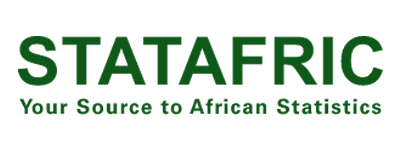Commemorative events on the African Statistics Day have concluded with emphasis on the need to harmonize and invest more resources in technical and financial aspects of the development of statistics, if African statistics are to regain their full credibility. Statistics remain a key element in the implementation of the development agenda and remain at the heart of the implementation of Africa’s Agenda 2063. The growing demand for legitimate, quality and timely statistics has in recent years been a priority at the national, regional and continental levels leading to the adoption by the African Union Member States in 2018, of the revised Strategy for the Harmonization of Statistics in Africa (SHaSA 2). SHaSA 2 enables the African Union Commission, the eight (8) Regional Economic Communities and the 55 Member States of the African Union to produce quality and up-to-date statistics for planning, monitoring and evaluation of Agenda 2063.
The African Charter on Statistics serves as a comprehensive policy framework for the development of statistics in Africa. Its ratification and domestication and the full implementation of SHaSA, are expected to leapfrog the continent to generate reliable and harmonized statistics covering the environmental, social, economic, cultural and political dimensions of sustainable development through the implementation of a coordinated strategy at the continental level. Tunisia’s Minister of Economy, Finance and Investment Support Mr. Ali Kooli, observed that in order to monitor and ensure the success of these development programs and the African integration process, it is imperative that reliable and harmonized statistics are regularly produced and disseminated. “One cannot speak of sustainable development without taking into account the importance and usefulness of statistics in decision-making. They provide the information necessary for policy definition, monitoring, evaluation and measurement of progress in improving the living conditions of populations. They are, therefore, crucial in development planning and at the heart of the implementation of Agenda 2030 and Agenda 2063”, he added.
The African Union in 2013, adopted the decision to create an African Union Statistical Institute (STATAFRIC) based in Tunis. The institute is at the center of the promotion and production of harmonized official statistics in Africa. The African Statistics Day observed every 18th of November, was marked under the 2020 theme on "Modernizing National Statistical Systems to Support Sustainable Peace and Development in Africa” aligned to the theme of the African Union theme of the year on "Silencing the guns: creating conditions conducive to Africa's development". Since 2012, the African Union Commission, led by the Department of Economic Affairs, has been supporting AU Member States in the production of Governance, Peace and Security statistics under the Governance, Peace and Security Working Group of SHaSA 2.
With the outbreak of the COVID-19 pandemic, the need to accelerate the modernization of statistical systems has been more pronounced. Knowledge exchange and experience sharing within the African statistical community must be strengthened and accompanied by investment in building more robust and modern statistical production systems. African Union Commissioner for Economic Affairs, Prof. Victor Harrison however noted that this will only be achieved with sufficient financial allocations to the statistics systems. The African statistical systems are faced by challenges of financing statistical activities. Prof. Harrison maintained that the statistical production, which is a matter of national sovereignty, must be financed entirely from national budgets, on the same basis as all socio-economic sectors. “Currently, most statistical activities at national, regional and continental levels are financed by development partners. Major data collection operations such as the population and housing census, modular integrated household surveys, employment surveys, demographic and health surveys are financed by development partners. This therefore raises issues of non-regularity of statistical activities and the data from international institutions, which is mostly estimates, sometimes does not correspond to the realities of African countries. This creates a serious problem for the implementation of development agendas in Africa”, he stated.
The national statistical systems often lack quality statisticians, particularly in innovative fields. Despite the ever increasing number of statisticians trained on the African continent, the lack of quality statisticians at the level of national statistical institutes, and at the level of planning and monitoring and evaluation departments of Ministries has been witnessed. This translates and leads to African countries making use of data from international institutions for planning, monitoring and evaluation of their development agenda.
At the commemorative events, the African Union Commission also launched the third edition of the African Trade Statistics Yearbook, a time-series of annual trade data for the period from 2013 to 2019. The Yearbook acknowledges that harmonized and high-quality trade statistics data are critical to support trade negotiations. It fulfils the need for comprehensive, detailed and reliable statistics on merchandise trade in African Union. With the establishment the African Continental Free Trade Area (AfCFTA) and endorsed the Action Plan on Boosting Intra-Africa Trade, reliable and exhaustive statistics on the external trade of the African countries, preferably originating from data provided by the countries themselves, has also grown rapidly.
Find the 3rd edition of the African Trade Statistics Yearbook here.
For further information please contact:
Doreen Apollos, Directorate of Information and Communication | African Union Commission | E-mail: ApollosD@africa-union,org | www.au.int|Addis Ababa | Ethiopia









